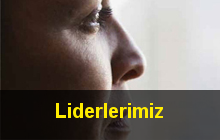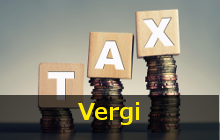
Invisible hand collecting taxes and supplementary budget
Abdulkadir Kahraman
While the preparations for the Medium Term Program (MTP) for the 2024-2026 period continue, the 2023 Supplementary Budget Law (Law No. 7457) was adopted by the Turkish Grand National Assembly and entered into force on 27 July 2023. The additional budget law proposal of 1,119,514,513.000 TL, which was prepared on the grounds of meeting the appropriation needs of public administrations, especially the expenditures due to earthquakes in Kahramanmaraş province, Pazarcık and Elbistan districts occurred on February 6, 2023, was enacted.
The distribution of the total tax revenues of the 2023 budget, including the additional budget, is as follows:
| Tax type | 2023 Budget share (%) |
| Direct Taxes | 34,11 |
| Indirect Taxes | 64,14 |
| Wealth Tax | 1,7 |
Who is the invisible hand collecting taxes?
What is the biggest support to realize budget targets? Absolutely the inflation. Inflation is defined as a hidden tax by many economist. For this reason, invisible hand inflation will be the biggest assistant of the treasury in meeting its tax revenue targets. Inflation causes tariff shifts (shifting payrolls to higher tranches and rates), allowing more direct tax revenue to be collected. In addition, since there is no inflation accounting, paying taxes on unreal fictitious gains also increases tax revenues. Since inflation is a hidden tax, it also violates the principle of legality in taxation. Inflation taxes fictitious income, not real income.
What should change in terms of medium term program and taxation policies?
Instead of taxing the existing tax base with tax rate increases and additional tax liabilities, the following steps should be taken to expand the tax base:
- A strategy should be determined for the implementation of the “global minimum corporate tax” and predictability should be ensured by taking the opinions of Turkish resident multinational companies,
- Mechanisms for the taxation of net income and real income taxation should be included in the tax legislation:
- Inflation adjustment practice should be commenced,
- The "last in, first out" (LIFO) practice should be brought back due to inflation,
- The scope of the "discount rate" application used in real income taxation should be expanded,
- In order to update the income tax schedule, both tax brackets and rates should be reviewed (more tax brackets and different tax rates with wider bracket amounts),
- As with wage and self-employment earnings (exceeding the amount in the fourth income bracket), including money and capital market incomes exceeding a certain amount in the scope of declaration (however, the fictitious part of these earnings arising from inflation should be eliminated and real income should be taxed),
- The public should be assured by adopting a policy of not issuing tax amnesty, such as fiscal discipline criteria, and amnesties should be prevented from destroying tax morale,
- The "wealth tax" practices, which have been abandoned in modern tax systems and whose effectiveness is a matter of debate, should be avoided, artificial wealth tax appetite should not be stimulated based on the number of deposit account holders over 1 million addressing for wealth taxes; should focus on untaxed income sources (such as processing large tax data from automatic exchange of information and taxation of undeclared income).
This is the summary of the article published in the Ekonomist magazine’s issue 2023/15, dated 25.07.2023.
Explanations in this article reflect the writer's personal view on the matter. EY and/or Kuzey YMM ve Bağımsız Denetim A.Ş. disclaim any responsibility in respect of the information and explanations in the article. Please be advised to first receive professional assistance from the related experts before initiating an application regarding a specific matter, since the legislation is changed frequently and is open to different interpretations.










 Başa Dön
Başa Dön